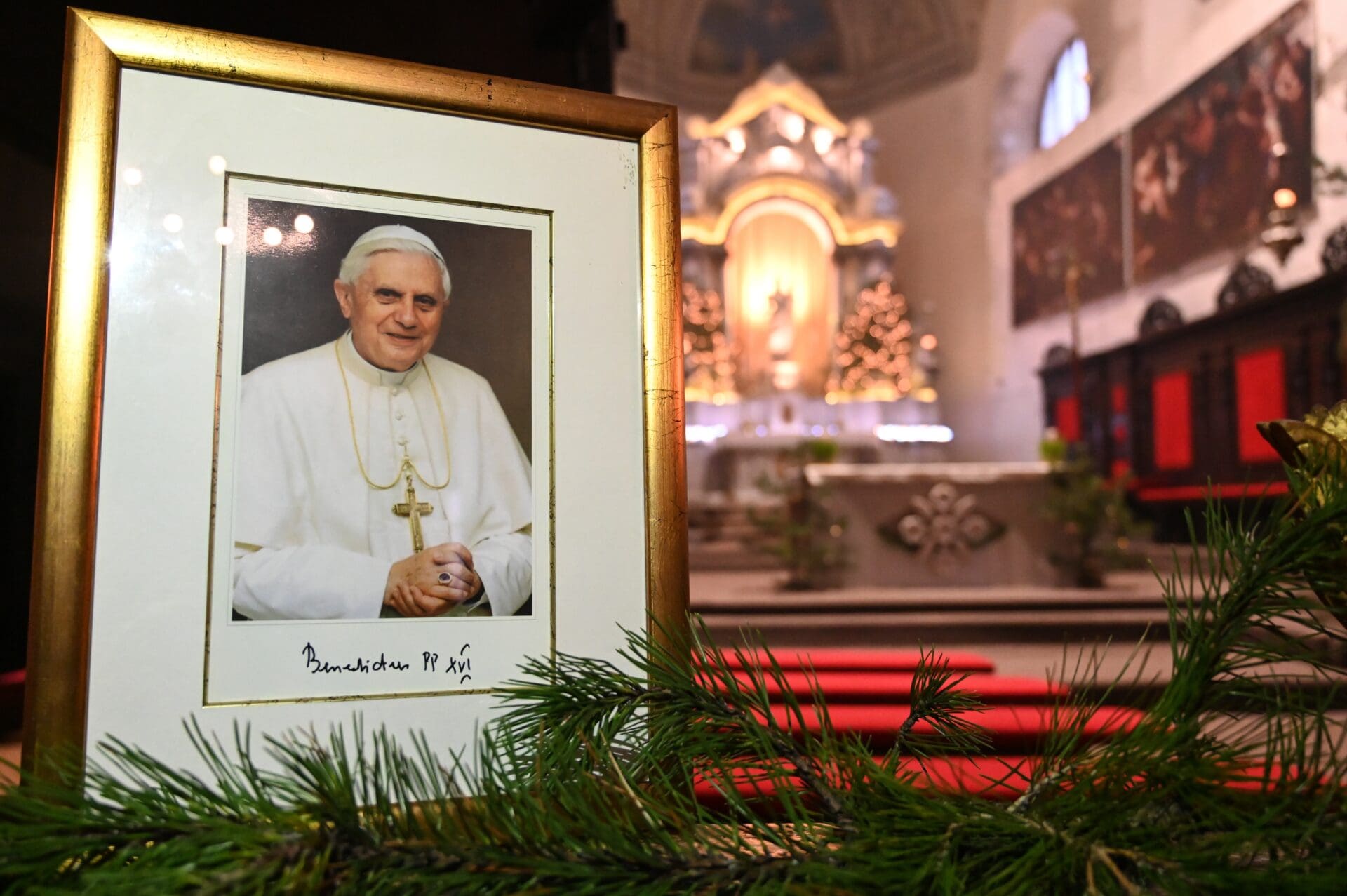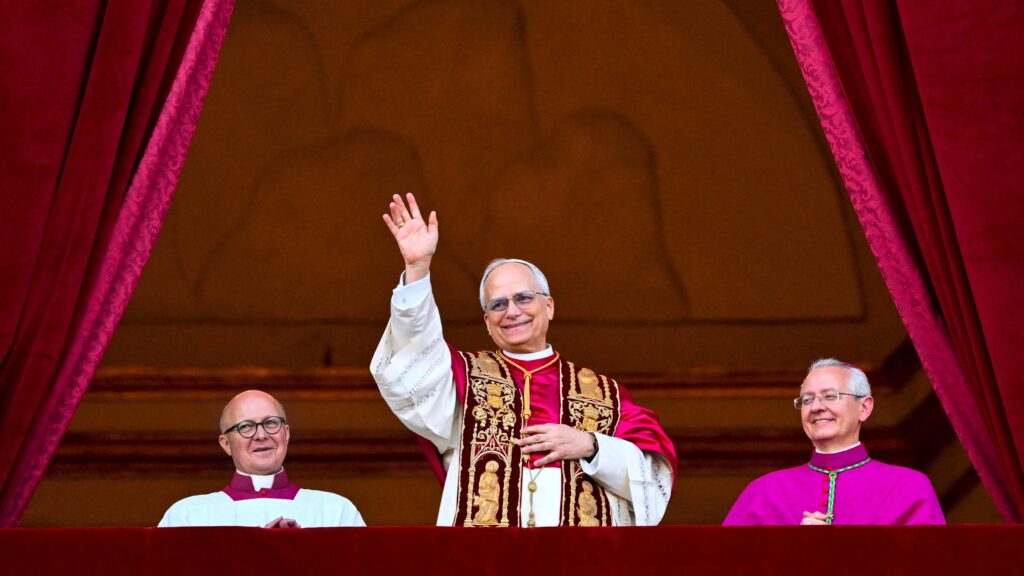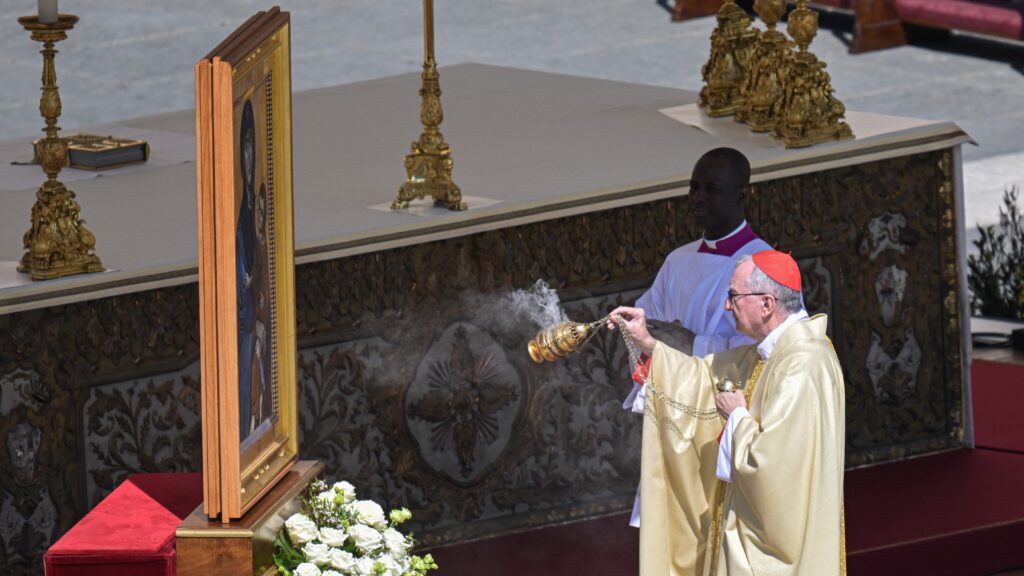Pope Emeritus, Benedict XVI passed away on 31 December 2022. The 265th pope of the Roman Catholic Church presented himself as ‘a humble worker in the vineyard of the Lord’; by the same token, the world knew him for his commitment to academia. Although Benedict’s reasoning at the time, citing a loss of stamina and his advanced age, was justifiable, his resignation from the Petrine ministry in 2013 came as a surprise. He was the first pope to resign since Gregory XII in 1415. After his resignation he chose to be known as Pope Emeritus—a title he retained until the end of his life—which prompted an academic debate about the legal nature of the title. Pope Emeritus Benedict XVI’s recent passing makes the revisiting of that debate opportune.
There are three clerical orders in the Roman Catholic Church: bishops, priests and deacons. The bishop constitutes the fullness of the sacrament, there is no higher ordination than this. The bishop of Rome enjoys a special authority and respect within the Church, due to the unique position of the first bishop of Rome, Saint Peter the Apostle. This unique position evolved into a more complete teaching concerning the Petrine ministry in dogmatic history.
The bishop of Rome, commonly referred to as Pope, bears many titles related to his service, both official and unofficial. These titles—currently seven official ones—emphasize different aspects of his service. For example, that he is the servant of the servants of God means that service is the main essence of being a pope, and that God is always at the centre. The faithful, according to their theological taste and confessed spirituality, may also feel closer to themselves one or more of the titles when they are contemplating about Petrine ministry.
Since the Petrine ministry is just one of the ways a bishop may serve the Church, and the resignation of a bishop is not just everyday business sociologically, but very clearly defined in the current Codex Iuris Canonici (the Code of Canon Law),[1] in theory the resignation of the bishop of Rome should not cause any specific difficulties for the institution. Let us see the canonical regulations surrounding the resignation of a bishop! Canon 402 closes the Article dealing with diocesan bishops, and its first paragraph makes regulations concerning the use of the title, as well as the future place of his residence: ‘A bishop whose resignation from office has been accepted retains the title of emeritus of his diocese and can retain a place of residence in that diocese if he so desires, unless in certain cases the Apostolic See provides otherwise because of special circumstances.’ The second paragraph in the very same Canon regulates the question of who should be responsible for the financial support for such a bishop emeritus: ‘The conference of bishops must take care that suitable and decent support is provided for a retired bishop, with attention given to the primary obligation which binds the diocese he has served.’
In Church history, the resignation of a pope so far remained a rarity,
mainly because it was thought it would create many theological and leadership issues; and partly because life expectancy was low, thus the illness of a pope due to his age was rarely a problem. In the last and the present centuries, Catholics tend to elect popes who are sixty or more years old. This service is one of the most demanding of any leadership positions; at the same time, life expectancy is high, so the possibility of the resignation of a pope due to illness indeed comes to the fore. If we follow the current canonical regulations, the situation seems to be very clear: by resignation, a former pope becomes bishop emeritus of Rome, he may stay in the Vatican, he remains incardinated in the diocese of Rome, and the conference of Italian bishops must provide him with suitable and decent support, out of gratitude for his service.
Apart from the canonical regulations, there are legal precedents as well in Church history that provide a basis for the consequences of a resignation: especially the case of Gregory XII in 1415 (it was a forced resignation!) as well as Celestine V in 1294—and these have remained the main blueprints for such scenarios up until now. Pope Benedict XVI provided the future Church history with some precedents to follow from now on as well: the pope emeritus retains his papal name, he sports the white cassock, he will be buried in his red vestment. On the other hand, his fisherman’s ring and seal is destroyed, he does not wear the red shoes, he does not vote as a cardinal in his successor’s election, and he will be buried without the full ceremonialism of a pope who actually died as a serving pope.
Originally, in Latin ‘emeritus’ was the soldier who completed his (sometimes her) duty. The modern word ‘emeritus’ emerged in academic circles (its first known use in English is from 1692),[2] designating a professor who deserves all merits because of her or his lifelong service. It was only after the Second Vatican Council (1962–1965) that this word entered canon law: bishops were first encouraged then required to submit their resignation at the obligatory age of 75; and it may or may not be accepted by the pope. A slight confusion might emerge here in comparison, because in academic life there is a difference between a retired professor and an emeritus one, the later still remaining active in teaching for example. A pope emeritus does not continue to fulfil duties related to the papal office or Petrine ministry.[3]
The title ‘pope emeritus’ might not be the proper designation of a pope resigning his office in the future; experts recommend instead the title ‘bishop emeritus of Rome’, following the example of all other bishops.[4] It would avoid confusion in lay people as to whether there are ‘two popes’ serving at the same time.[5] For theologians, it is very clear even now who is in charge, who possesses the power of governance.[6]
An additional question which is not regulated, though, is the case when the pope is impeded or impaired in such a way that this situation is complete, permanent as well as irreversible; for example because of an illness.[7] In this situation every care should be taken that (Church) political games do not play any role in declaring who is unable to exercise the papal ministry, for example. It is very important, and care should be taken that—apart from the case of impediment—the resignation of the pontiff be absolutely voluntary, one taken freely, without need of formal acceptance; otherwise we might open a new door for internal Church politics, or, even worse, for external worldly politics.
[1] Code of Canon Law. In https://www.vatican.va/archive/cod-iuris-canonici/cic_index_en.html.
[2] See the etymology: Emeritus. In Merriam-Webster Dictionary. In https://www.merriam-webster.com.
[3] More about Ratzinger’s political thinking: András Jancsó, ‘Theologians on Modern Politics: Joseph Ratzinger’, Hungarian Conservative ((6 Sept. 2021), https://www.hungarianconservative.com/articles/philosophy/theologians-on-modern-politics-joseph-ratzinger
[4] About the proposal: Carol Glatz, Canon law experts draft proposed laws on status of a retired pope, Catholic Standard (12 Aug. 2022), https://cathstan.org/news/faith/canon-law-experts-draft-proposed-laws-on-status-of-a-retired-pope
[5] About the praise of the behaviour of Benedict XVI as pope emeritus, see: Nicole Winfield, ‘Benedict death paves way for protocols to guide future popes’, Katv.com (1 Jan. 2023), https://katu.com/news/nation-world/benedict-death-pope-francis-xvi-catholic-church-germany-rome-protocols-funeral-future-mass-st-peters-basilica.
[6] Many more on the question of resignation: Cathy Caridi, ‘Canon Law and Two Popes’, Canon Law Made Easy (21st March 2013), https://canonlawmadeeasy.com/2013/03/21/canon-law-and-two-popes.
[7] On questions surrounding the impediment: Luigi Sabbarese, ‘Growing movement among canon law experts aims to address an “obstructed papacy”’, The Church (27 Nov. 2022), published on Romereports, https://www.romereports.com/en/2022/11/27/growing-movement-among-canon-law-experts-aims-to-address-an-obstructed-papacy
Read Next







